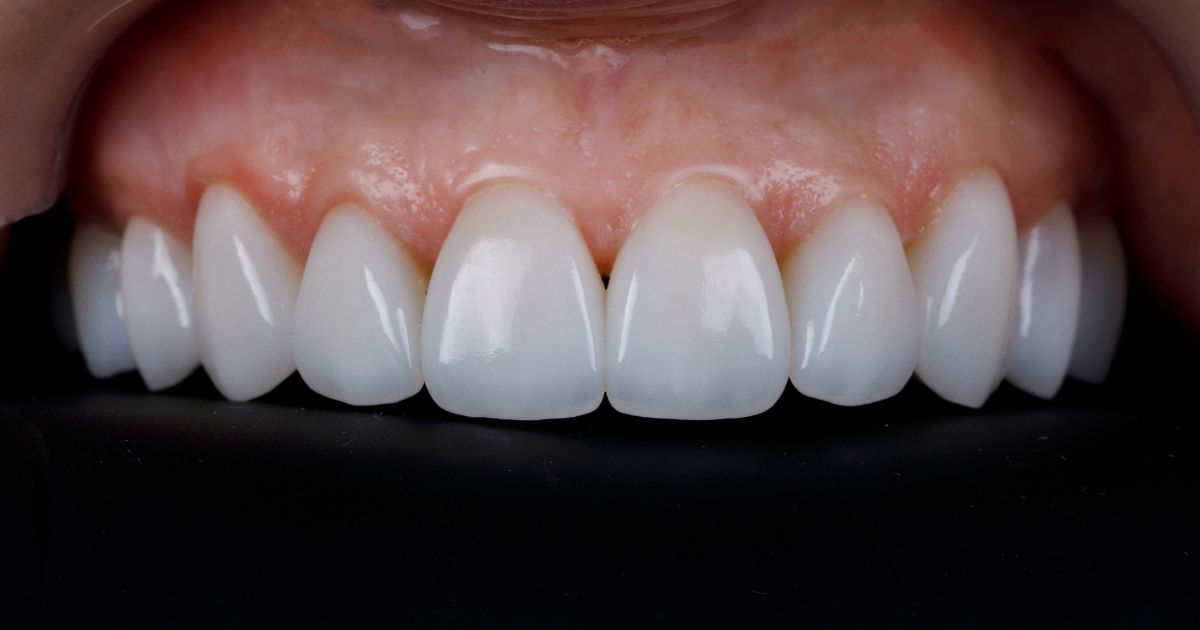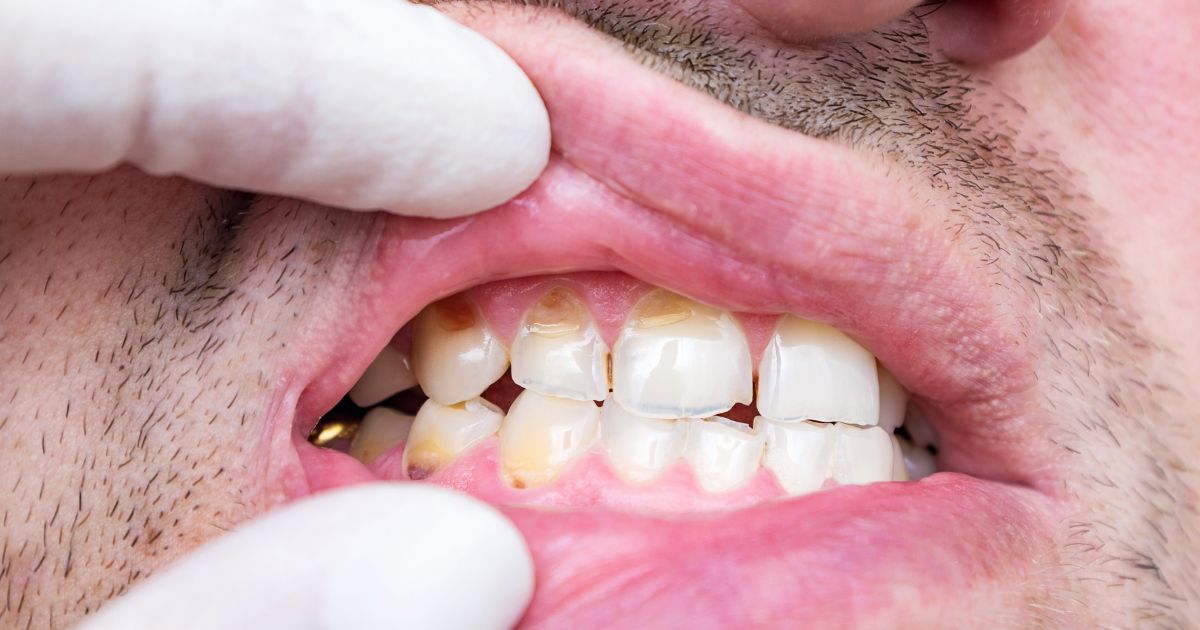
What Do Veneers Look Like After 10 years
Veneers have become a popular cosmetic dentistry option for those seeking a flawless smile. As we delve into the tenth year post-veneer placement, understanding what to expect in terms of appearance and durability is crucial. This blog post will explore about what do veneers look like after 10 years and guide you through essential aspects such as maintenance, signs of replacement, factors influencing lifespan, the selection of a suitable dentist, the comparison with crowns, and answers to frequently asked questions.
Veneer Longevity: What do Veneers Look Like After 10 Years
After investing in dental veneers, patients often wonder about the longevity of these cosmetic enhancements. Understanding what to expect after a decade is crucial for making informed decisions about dental care.
- Natural Wear and Tear: Veneers generally withstand the test of time but may exhibit signs of natural wear and tear after 10 years.
- Stain Resistance: High-quality veneers maintain their stain resistance, ensuring a vibrant and enduring smile.
- Color Stability: The color stability of veneers over the years is a key consideration for those seeking long-lasting aesthetic improvements.
- Surface Integrity: Assessing the surface integrity helps gauge the overall condition of veneers after a decade.
- Professional Evaluation: Regular professional evaluations are essential to monitor veneer health and address potential issues proactively.
- Individual Variability: Patient habits and individual variability play a role in determining how veneers age over time.
Veneer Maintenance Tips for Long-Lasting Results
Achieving a decade-long lifespan for veneers requires diligent maintenance. Implementing the right care routine is essential for preserving the quality and appearance of these dental enhancements.
| Maintenance Practice | Importance | Tips |
| Regular Dental Check-ups | Early issue detection contributes to longevity. | Schedule routine check-ups for timely assessments. |
| Proper Oral Hygiene | Essential for veneer health and longevity. | Brush and floss regularly for optimal care. |
| Avoiding Excessive Force | Minimizes stress on veneers for lasting results. | Address teeth grinding and nail-biting habits. |
| Limiting Stain Substances | Preserves the stain-resistant quality of veneers. | Reduce consumption of substances causing stains. |
| Using Custom Mouthguards | Protects against damage from teeth-related habits. | Recommended for sports activities and teeth grinding. |
| Professional Cleanings | Maintains veneer cleanliness and overall health. | Regular cleanings aid in preventing issues. |
Signs That Your Veneers May Need Replacement
Over time, veneers may exhibit signs of wear or damage, necessitating replacement. Being aware of these signs is crucial for timely intervention and optimal oral health.
- Chips or Cracks: The presence of visible chips or cracks in veneers may indicate structural damage, requiring replacement.
- Discoloration: Persistent discoloration that cannot be addressed through teeth whitening may suggest the need for new veneers.
- Gum Recession: Changes in gum levels can affect the appearance of veneers, and replacement may be necessary to maintain a natural aesthetic.
- Pain or Discomfort: Persistent pain or discomfort around veneers could signal underlying issues, prompting the need for professional assessment.
- Outdated Technology: Advancements in dental technology may make newer veneer options more durable and aesthetically advanced, prompting individuals with older veneers to consider replacement.
- Ineffective Repairs: If previous repairs or alterations to veneers prove ineffective, replacement may be the most viable solution for lasting results.
Factors Affecting Veneer Lifespan
Various factors contribute to the longevity of dental veneers. Understanding these factors can guide patients in making informed decisions and maintaining their veneers over an extended period.
| Factors | Impact | Considerations |
| Quality of Materials | Directly influences veneer durability. | Choose high-quality materials for longevity. |
| Dentist’s Skill | Expertise impacts the success of veneer placement. | Seek experienced dentists for optimal results. |
| Oral Habits | Patient habits affect wear and tear on veneers. | Minimize habits like grinding for better longevity. |
| Oral Hygiene Practices | Essential for preventing issues. | Maintain proper oral hygiene for veneer health. |
| Dietary Choices | Diet can impact the appearance and longevity. | Limit stain-causing and acidic foods for longevity. |
| Regular Maintenance | Check-ups and maintenance routines are crucial. | Stay consistent with professional care for veneers. |
How to Choose a Dentist for Veneer Placement
Selecting the right dentist for veneer placement is a critical decision that can influence the success and longevity of the cosmetic procedure.
- Credentials and Qualifications: Assessing the dentist’s credentials and qualifications ensures that the professional has the necessary expertise in cosmetic dentistry.
- Experience with Veneers: A dentist with a proven track record and experience in veneer placement is more likely to deliver satisfactory and long-lasting results.
- Patient Reviews and Testimonials: Reviews and testimonials from previous patients provide insights into the dentist’s reputation and the satisfaction of their clientele.
- Technology and Techniques: A dentist who keeps abreast of the latest dental technologies and techniques is better equipped to offer advanced and durable veneer solutions.
- Communication Skills: Effective communication between the dentist and the patient is crucial for understanding expectations, ensuring a collaborative approach to veneer placement.
- Consultation Process: A thorough consultation process, including discussing the procedure, potential outcomes, and post-placement care, is indicative of a dentist’s commitment to patient education and satisfaction.
Veneers vs. Crowns: Which Is Right for You?
Choosing between veneers and crowns requires careful consideration of individual dental needs and goals. Understanding the differences helps patients make informed decisions.
| Consideration | Veneers | Crowns |
| Purpose and Coverage | Primarily for cosmetic enhancement. | Used for both cosmetic and structural restoration. |
| Tooth Reduction | Minimal tooth reduction required. | More extensive reduction for crown placement. |
| Durability and Strength | Emphasizes aesthetics, less robust than crowns. | Provides added strength and support to the tooth. |
| Color Matching | Can be color-matched to natural teeth. | Offers color matching, but customization may vary. |
| Indications for Use | Ideal for improving the appearance of healthy teeth. | Recommended for significant damage or decay. |
| Long-Term Maintenance | Requires proper care for lasting results. | Both require diligent maintenance for longevity. |
Understanding the longevity, maintenance, and potential signs of replacement for veneers after a decade is crucial for individuals seeking lasting aesthetic improvements, including those curious about what do veneers look like after 10 years. Factors such as material quality, dentist selection, and individual habits play pivotal roles in determining the lifespan of veneers.
By weighing the considerations between veneers and crowns and addressing common questions, patients can make informed decisions to enhance their smiles and maintain optimal oral health for years to come. For those in Dubai, finding the best veneers in Dubai involves considering the credentials and experience of local dentists, as well as exploring patient reviews and testimonials for a well-informed choice.
Frequently Asked Questions About Veneers
How Long Do Veneers Last?
The lifespan of veneers varies but can extend up to 10-15 years with proper care and maintenance.
Do Veneers Stain?
High-quality veneers are designed to resist staining; however, minimizing exposure to stain-causing substances is advisable.
Can Veneers Be Whitened?
Unlike natural teeth, veneers do not respond to traditional teeth whitening methods; replacement may be necessary for significant discoloration.
Are Veneers Reversible?
Veneer placement involves minimal tooth reduction, and while the process is not entirely reversible, adjustments can be made if needed.
Do Veneers Require Special Care?
While not significantly different from natural teeth, veneers benefit from regular check-ups, proper oral hygiene, and protective measures against excessive force.
Can Veneers Fix Crooked Teeth?
Veneers can improve the appearance of mildly crooked teeth, but more severe cases may require orthodontic interventions.
Table of Contents



